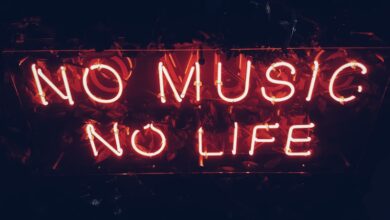Exploring the Role of Music in Conflict Transformation and Reconciliation

Music has a remarkable ability to bridge divides, heal wounds, and foster harmony among people. In the realm of conflict transformation and reconciliation, music plays a pivotal role in bringing communities together, instilling hope, and promoting understanding. Its power lies in its universal language, capable of transcending cultural, linguistic, and ideological barriers.

When we think of conflict, we often envision hostility and discord. However, music has the potential to transform this narrative. It serves as a common ground where individuals from opposing sides can find shared experiences and emotions. Through the power of melody, rhythm, and lyrics, music creates a safe space for dialogue and empathy to flourish.
One of the key ways in which music contributes to conflict transformation is by amplifying marginalized voices. It provides a platform for those who have been silenced or oppressed, allowing their stories to be heard and validated. Music empowers individuals to express their pain, frustrations, and aspirations, enabling them to reclaim their identity and seek justice.
Moreover, music possesses the unique ability to evoke emotional responses. It taps into our deepest emotions, stirring compassion, empathy, and forgiveness. By listening to melodies that resonate with the human experience, we can develop a sense of connectedness and recognize our shared humanity. This emotional connection paves the way for healing and reconciliation, fostering an environment where forgiveness becomes possible.
In addition to its emotive qualities, music can also serve as a catalyst for social change. Songs with powerful messages of peace, unity, and justice have the potential to inspire collective action and mobilize communities towards positive transformation. Just like a conductor guiding an orchestra, music has the capacity to synchronize efforts, harmonize diverse perspectives, and create a symphony of collaboration.
Music holds immense potential in the realm of conflict transformation and reconciliation. It breaks down barriers, amplifies unheard voices, evokes emotions, and inspires change. As we explore the role of music in this context, we discover its ability to foster understanding, heal wounds, and create a shared vision for a better future. Let us embrace the transformative power of music and allow it to guide us towards a world where conflicts are resolved, and harmony prevails.
Harmony in the Midst of Chaos: How Music Is Bridging Divides and Facilitating Reconciliation
In a world often fraught with division and conflict, one powerful force has emerged as a universal language capable of transcending barriers – music. Beyond its ability to entertain and inspire, music has proven to be an extraordinary tool for fostering harmony and facilitating reconciliation in even the most turbulent times.
When societies find themselves torn apart by differences, music steps in to provide solace and healing. Its enchanting melodies and captivating rhythms possess a unique ability to evoke emotions that transcend cultural, racial, and political boundaries. Through the harmonious arrangement of notes, music speaks directly to our souls, touching the depths of our being and reminding us of our shared humanity.
Music’s role in bridging divides becomes evident in various contexts. Take, for instance, the power of music in conflict zones. In war-torn regions, where divisions run deep and wounds are raw, musicians have courageously stepped forward to use their talents as instruments of peace. They bring people together, allowing them to momentarily set aside their differences and unite through the beauty of sound. These musical gatherings become spaces where dialogue and understanding can flourish, encouraging reconciliation and fostering a sense of collective identity.
Even beyond conflict zones, music demonstrates its remarkable capacity to bridge cultural gaps. Through the celebration of diversity, music enables individuals from different backgrounds to connect deeply and embrace each other’s unique heritage. Whether it is through vibrant folk tunes, rhythmic drumbeats, or soul-stirring ballads, music serves as a conduit for cultural exchange and appreciation. It allows us to appreciate the richness of various traditions, breaking down stereotypes and fostering empathy and respect.
Moreover, music possesses an inherent transformative power. It has the ability to instill hope, inspire change, and motivate action. When faced with seemingly insurmountable challenges, music empowers individuals and communities to rise above their circumstances and find common ground. It amplifies voices that have long been silenced, giving a platform to marginalized groups and empowering them to share their stories. In this way, music becomes a catalyst for social change, promoting justice and equality.
Amidst the chaos of our world, music emerges as a unifying force capable of bridging divides and fostering reconciliation. Its enchanting melodies transcend cultural and political boundaries, speaking directly to our hearts and souls. Through the power of music, we can strive for harmony, celebrate diversity, and work towards a more peaceful and inclusive world. So let us embrace the transformative power of music and allow it to guide us on the path of unity and understanding.
The Power of Melody: Uncovering the Transformative Influence of Music in Conflict Zones

Imagine a world where the chaotic sounds of war are transformed into harmonious melodies that resonate through the hearts of people. In conflict zones, where violence and despair reign, music emerges as a powerful force capable of healing wounds, bridging divides, and fostering hope. The transformative influence of music in these challenging environments is nothing short of remarkable.

When bombs shatter buildings and tear apart communities, it is often music that mends the broken pieces. Through its universal language, music connects individuals, transcending cultural and linguistic barriers. It has the extraordinary ability to evoke emotions, stirring feelings of joy, sorrow, and unity, even amidst the bleakest circumstances. In conflict zones, where communication can be hindered, music becomes an instrument of expression, enabling people to communicate their experiences, dreams, and aspirations.
Music possesses the uncanny power to unite disparate voices and create a collective sense of identity. In conflict-ridden regions, where divisions run deep, melodies become the unifying thread that weaves together diverse communities. They provide a shared space where individuals from opposing sides can come together, finding solace and common ground. Through collaborative musical endeavors, such as choirs or orchestras, enemies become collaborators, finding harmony in their shared love for music.
Beyond its immediate impact on individuals and communities, the influence of music extends to long-term healing and reconciliation. As melodies reverberate through war-torn streets, they carry messages of peace, resilience, and hope. Music provides an outlet for trauma and grief, offering a therapeutic release for those burdened by the weight of conflict. It allows individuals to express their pain, find catharsis, and envision a future beyond the devastation.
In many conflict zones, local musicians embrace their role as agents of change. Their songs become powerful tools for advocacy, shedding light on social injustices, human rights violations, and the need for peace. By amplifying their voices through music, these artists raise awareness, inspire activism, and foster dialogue. They become catalysts for transformation, igniting a movement towards reconciliation and social change.
The power of melody in conflict zones is awe-inspiring. Music transcends boundaries, unites communities, and brings healing in the midst of turmoil. It serves as a testament to the indomitable human spirit, reminding us that even in the darkest of times, the transformative influence of music can ignite the flames of hope and create a better tomorrow. So let us embrace the melodies that unite us and harness the power of music to build bridges where there were once divides.
Soothing the Wounds of War: Music’s Healing Impact on Post-Conflict Communities
In the aftermath of war, communities are left with deep scars and a profound need for healing. While physical reconstruction is crucial, the emotional and psychological wounds can be just as severe. Amidst this turmoil, music emerges as a powerful force, capable of soothing the souls of post-conflict communities and facilitating their journey towards recovery.
When we consider the healing impact of music, it becomes evident that its influence extends far beyond entertainment. As a universal language, music has the ability to transcend cultural boundaries and communicate directly with our emotions. It resonates within us, evoking feelings of joy, sadness, hope, and unity. In the context of war-torn communities, music offers solace and serves as a catalyst for collective healing.
Music possesses a unique therapeutic quality that can unlock emotions and memories deeply buried within individuals. Through its melodies, rhythms, and lyrics, it provides an outlet for expression and catharsis. Post-conflict communities often carry a heavy burden of grief, trauma, and loss. Music acts as a medium through which they can navigate these complex emotions, finding comfort and release in the process.
Moreover, music has the remarkable ability to foster social cohesion and rebuild fractured communities. In environments where trust and harmony have been shattered, music becomes a unifying force that transcends divisions and nourishes the human spirit. It creates shared experiences and brings people together, erasing the lines that once separated them. Through collaborative music-making, individuals rediscover their sense of belonging and rebuild connections broken by war.
In its essence, music speaks directly to the heart and soul. It has the power to inspire hope, resilience, and transformation. The healing impact of music on post-conflict communities is akin to a balm that soothes wounds, allowing individuals to confront their pain and embrace the path to healing. Just as a skilled conductor harmonizes a symphony, music orchestrates healing within communities, restoring balance and bringing forth a renewed sense of purpose.

Music’s healing impact on post-conflict communities is profound and transformative. By providing solace, facilitating emotional expression, fostering social cohesion, and inspiring resilience, it plays a pivotal role in the recovery process. As communities emerge from the ruins of war, the power of music becomes a beacon of hope, guiding them towards a brighter future where wounds are soothed, and harmony prevails.
From Battlefield to Orchestra: Stories of Musicians Rebuilding Lives Through Music
Keyword: Musicians Rebuilding Lives Through Music

Introduction:
Can you imagine the power of music to heal wounds and rebuild lives? In this article, we delve into the incredible stories of musicians who have found solace and hope in their art, transforming their lives from the battlefield to the orchestra. These individuals have harnessed the therapeutic qualities of music, allowing it to become a catalyst for personal growth and resilience. Let’s explore how the harmonious notes of melody have brought about remarkable transformations.
Unlocking Emotional Expression:
For those who have experienced the horrors of war or trauma, finding an outlet for their emotions can be immensely challenging. However, music provides a unique language that transcends words, enabling these individuals to express their deepest thoughts and feelings. Through their compositions or performances, these musicians find a safe haven where they can process their pain, joy, and everything in between. The melodies become a vessel through which their emotions flow freely, promoting healing and inner peace.
Creating Connections:
Music has an extraordinary ability to connect people across cultures, languages, and backgrounds. For musicians rebuilding their lives, this connectivity holds immense value. Joining orchestras or bands not only allows them to collaborate with fellow artists but also fosters a sense of belonging and community. The shared love for music fosters bonds that go beyond any geographical or social boundaries. In this supportive environment, they discover a new family, united by their passion for creating harmonies and melodies that touch the hearts of listeners worldwide.
Empowering Resilience:
The journey of rebuilding one’s life is often filled with challenges and setbacks. However, the discipline and dedication required to learn and master an instrument mirror the determination needed to overcome obstacles. Through the pursuit of musical excellence, these musicians develop resilience, perseverance, and a strong work ethic. Every note they play becomes a testament to their strength and the indomitable human spirit.
Conclusion:
From the depths of despair to the soaring heights of artistic expression, these musicians have rewritten their life stories with the transformative power of music. Through their compositions and performances, they inspire others facing adversity to find solace, healing, and new beginnings. As we witness the incredible transformations sparked by music, let us celebrate the resilience of these individuals and recognize the profound impact that a melody can have on rebuilding lives.




